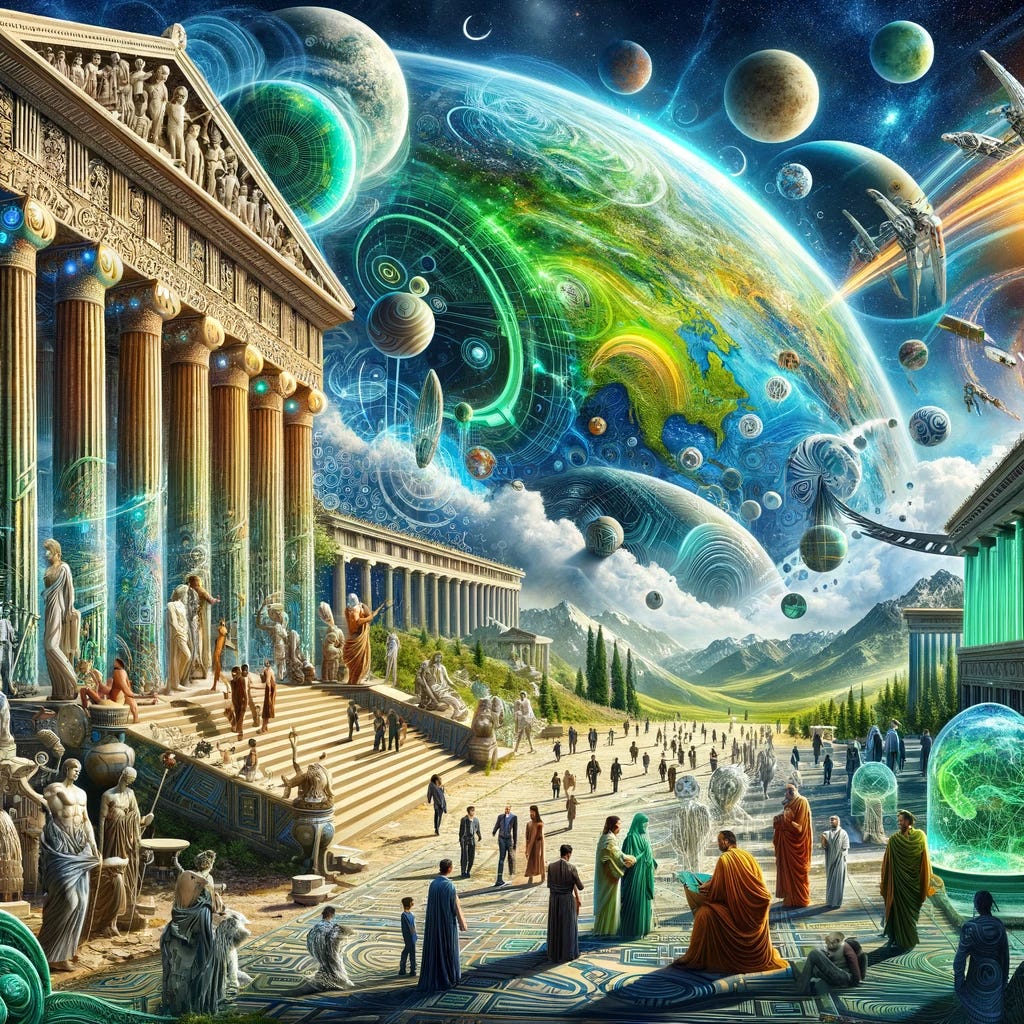Governance
Thank you @Christoph Raethke for opening this can of worms. This post is my attempt at a response. Since this is likely to exceed the bounds of a comment on LI, i am writing it here.
The central question is, whether there is something to learn from the thinkers of ancient Greece on the topic of design patterns for democracy and ethical bindings that allow for autocratic rule while ensuring that it won’t exploit the people at the same time.
Well, yea. Of course there is. But as an opening into this response i would like to expand the notion of learning from our ancestors into deeper history. The current set of cultural patterns that, while being a minority in total numbers, has accumulated enormous powers over the course of the last couple of hundred years, has its roots in the axial age revolution with happened during the times of ancient Greece. This means that since climate flattened approximately 10000 years ago, making it possible to engage in stationary life more easily, the cultural fabric that has emerged through that is a direct continuation of this fundamental change.
Today, as a result of this long journey, we have succeeded in this grand experiment, recently - in the last 250 years or so - reaching its climax by the discovery of ancient sunlight that burns well. Like any well behaved r-selected species we have used this resource to grow our numbers and are now not sure what to do as we have exceeded the carrying capacity of our planet in this modality. This does not mean that the planet cannot host 10 billion thriving humans, it means that it cannot host 10 billion thriving humans in the current modality of civilisation.
But before the agricultural revolution 10000 years ago, there were 10s of thousands of years of successful, thriving human life on the planet. Some of this knowledge is still alive today, carried down to us in oral traditions. And this is where we meet our first piece of important information around despots. By definition, despots are dark-triad types. If a community in Abya Yala, uthuru or biik noticed a child exhibiting dark-triad behavior, they would try to heal it. If they didn’t succeed, they would kill it, knowing the devastating effect a full blown psychopath can have on any community.
The real issue at hand is that at the end of a civilisation cycle, totalitarian ideas usually rise up as the incumbents are trying to hold on to or bring back to life an already dead modality of running civilisation. This is pretty well documented and nothing new. So, there is no surprise here that globally totalitarianism in all its forms becomes increasingly more dominant as we are sliding deeper into the triadic shitshow of late stage capitalism, ecological collapse and techno-utopian-accelerationism.
Pre agricultural revolution communities (and their surviving descendents today) always stayed somewhere along the Dunbar scale in population size, allowing them to weave a relational fabric of interdependence that made it possible and necessary to be in balance with their surrounding nature and people. We have not yet figured out how to scale this beyond the upper bounds of Dunbars scale. Our most recent implementation of democracy is likely the best stab at it so far, but it is far from what it could and should be.
In an interesting re-combination of governance modalities, Forrest Landry calls the “small group process”, he inadvertently re-invented the governance of these ancient communities:
At the core a consensus group weaves in a constant (and often exhausting) discourse a cultural and ethical consensus driven by the collective wants and needs. Out of this emerge hierarchical and meritocratically organised action groups, implementing in the world, what the center points towards. And thirdly, a democratic emergency button can be pushed by anyone, potentially invoking the consensus group to deliberate, as soon as dark-triad behaviour is detected.
As social coordination tends to break down at around 4000 individuals, we have yet to find a consistent and coherent way of scaling this locally extremely successful model up to higher trophic levels: bioregion, region of bioregions (nationstate?), continent, planet(s). One important element in this new experiment is likely to be sortition, the most overlooked aspect of the way ancient greeks used to think about democracy. This, in combination with coordination about our collective loss functions (eg: collective dreams and ambitions) will outperform any dark-triad despot. Not only that.
Once we - humanity - actually build sufficient agency to coordinate properly we will likely discover that we would be better off without dark-triad individuals and will agree that the best way to deal with them is to send them off-planet.


